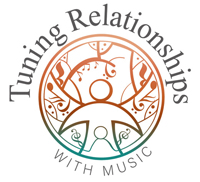Parents who have experienced interpersonal trauma - that is - abuse or betrayal by someone close to them - often work very hard to overcome their challenges to be the best parent they know how to be. However they may also struggle with relationships, including with their own kids.
Some of the ways interpersonal trauma can make it hard to be a parent include:-
* It may feel scary to let your child come close, to give your heart freely and risk being hurt again.
* It might be hard to manage anger and other strong feelings that seem to come out of nowhere. These may be activated when a child is behaving in a way that evokes feelings that belong to another time and place.
* It may be hard to manage being alone. This can mean that letting your child explore and become independent may feel painful and frightening.
These problems may in turn be hard on our kids. Children may feel:-
* like they're 'walking on eggshells'. Not knowing when a parent might suddenly become angry or overwhelmed may make it hard to relax, and to feel safe and secure.
* rejected or abandoned. If a parent withdraws to manage their own intense feelings, children may feel this is their fault - that there's something wrong with them.
* like their own needs aren't important. When a parent is consumed with managing their own intense emotions and triggers, they are not able to meet their young person's needs in that moment. Children may be able to tolerate this for a short period, but may struggle to manage if it happens over a longer time.
If you are experiencing these challenges as a family, it's important to know that effective help is available and you are not alone. Reaching out to a therapist experienced in working with parents and kids affected by trauma can help you re-pattern automatic reactions and ways of responding, to achieve the relationships that you long to have.
